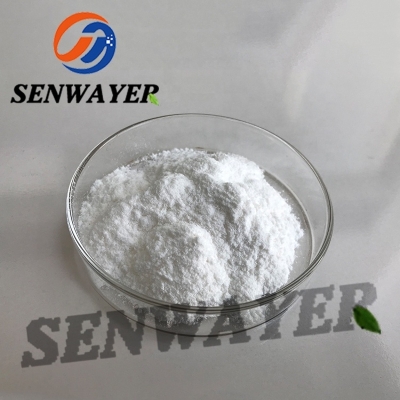-
Categories
-
Pharmaceutical Intermediates
-
Active Pharmaceutical Ingredients
-
Food Additives
- Industrial Coatings
- Agrochemicals
- Dyes and Pigments
- Surfactant
- Flavors and Fragrances
- Chemical Reagents
- Catalyst and Auxiliary
- Natural Products
- Inorganic Chemistry
-
Organic Chemistry
-
Biochemical Engineering
- Analytical Chemistry
- Cosmetic Ingredient
-
Pharmaceutical Intermediates
Promotion
ECHEMI Mall
Wholesale
Weekly Price
Exhibition
News
-
Trade Service
With the continuous improvement of the regulatory system in the field of companion diagnostics, the review and approval of therapeutic drugs and companion diagnostic reagents has accelerated.
More than 40 companion diagnostic products approved in the U.
In 1998, the US FDA approved Herceptin and its companion diagnostic reagent HercepTest for the detection of HER2 protein expression levels in breast cancer patients and to guide patients with positive metastatic breast cancer to use Herceptin for treatment.
Data show that as of February 2021, the FDA has approved 44 companion diagnostic reagents for 46 drugs.
The intended use of these companion diagnostic reagents is strictly limited to guide medication, and the detection methodologies are diversified.
my country's companion diagnostic products speed up the market
The companion diagnostic reagent industry in my country started late, but developed rapidly.
In January 2018, my country's drug regulatory authority approved the registration of the innovative product human EGFR gene mutation detection kit (multiplex fluorescent PCR method) produced by Xiamen Aide Biomedical Technology Co.
Currently, there are 16 tumor-related companion diagnostic reagents approved by the State Food and Drug Administration.
Among the above-approved companion diagnostic reagents, the companion diagnostic biomarkers in the field of non-small cell lung cancer treatment mainly focus on the deletion of exon 19 of the EGFR gene, the L858R point mutation, the T790M point mutation, and the ALK gene fusion, ROS1 gene fusion, etc.
From the review report published by the Medical Device Technology Review Center of the State Food and Drug Administration, we can see that the applicants have fully verified the efficacy of the drugs applicable to companion diagnostic biomarkers, and the number of cases ranges from 9 to 1,086.
Among the 16 products that have been marketed, 9 are "conditional approval for listing", which requires applicants to continue to verify the use of product companion diagnostics after the product is on the market.
Policy implementation is good for product development
"Guiding Principles for Clinical Trials of Companion Diagnosis Reagents for Marketed Anti-tumor Drugs (Draft for Comment)" "Guidelines for Updates and Technical Review of Instructions for Tumor Companion Diagnosis Reagents Based on Similar Therapeutics (Draft for Comments)" "Companion Diagnosis Reagents and Antitumor The release of documents such as the "Clinical Trial Technical Guidelines for the Synchronous Research and Development of Drugs" indicates that the era of simultaneous research and development, simultaneous registration and simultaneous listing of diagnostic reagents and drugs in my country is coming.
It can be seen from the relevant policies and regulations in my country that the Medical Device Technical Evaluation Center of the State Food and Drug Administration and the Drug Evaluation Center of the State Food and Drug Administration strongly support the cooperation between companion diagnostic reagent research and development companies and drug development companies.
With the continuous improvement of the regulatory system in the field of companion diagnostics, the review and approval of therapeutic drugs and companion diagnostic reagents has accelerated.
More than 40 companion diagnostic products approved in the U.
In 1998, the US FDA approved Herceptin and its companion diagnostic reagent HercepTest for the detection of HER2 protein expression levels in breast cancer patients and to guide patients with positive metastatic breast cancer to use Herceptin for treatment.
Data show that as of February 2021, the FDA has approved 44 companion diagnostic reagents for 46 drugs.
Except for 1 software companion diagnostic reagent and 1 companion diagnostic device approved in accordance with the pre-market notification procedure, and 2 approved in accordance with the humanitarian device exemption procedure, the remaining 40 reagents have undergone the most stringent pre-market approval procedures for approval.
The intended use of these companion diagnostic reagents is strictly limited to guide medication, and the detection methodologies are diversified.
Among them, PCR products are the most (14), followed by F/CISH products (11), 9 IHC products, 7 NGS products, 1 first-generation sequencing product, and 2 other products (see table for details).
The approved products are mainly concentrated in the field of anti-tumor drugs, especially breast cancer, non-small cell lung cancer, colorectal cancer, ovarian cancer, etc.
Among them, the cancer type with the most approved concomitant drugs is non-small cell lung cancer.
my country's companion diagnostic products speed up the market
The companion diagnostic reagent industry in my country started late, but developed rapidly.
In the "13th Five-Year Plan", the development of precision medicine is defined as a national strategy.
At the same time, my country is accelerating its integration with international standards in the field of companion diagnostics.
In January 2018, my country's drug regulatory authority approved the registration of the innovative product human EGFR gene mutation detection kit (multiplex fluorescent PCR method) produced by Xiamen Aide Biomedical Technology Co.
, Ltd.
This product has become my country's first companion diagnostic test product approved for osimertinib mesylate tablets, and can provide clinical references for doctors to formulate individualized treatment plans.
In July 2018, Guangzhou Burning Rock Medical's human EGFR/ALK/BRAF/KRAS gene mutation joint detection kit (reversible terminal termination sequencing method) was approved by the State Food and Drug Administration, and it was the first approved domestic tumor treatment field.
Companion diagnostic products based on NGS.
Currently, there are 16 tumor-related companion diagnostic reagents approved by the State Food and Drug Administration.
Among them, 9 use NGS methods, 2 PCR methods, 4 IHC methods, and 1 FISH method.
There are the most companion diagnostic reagents used in the field of non-small cell lung cancer treatment, and other tumor treatment fields involve urothelial cancer, colorectal cancer, and epithelial ovarian cancer.
Seven products have passed the approval of the innovative medical device channel, and two products are priority review and approval.
Among the above-approved companion diagnostic reagents, the companion diagnostic biomarkers in the field of non-small cell lung cancer treatment mainly focus on the deletion of exon 19 of the EGFR gene, the L858R point mutation, the T790M point mutation, and the ALK gene fusion, ROS1 gene fusion, etc.
Concomitant drugs are mainly concentrated in icotinib hydrochloride, osimertinib mesylate, gefitinib, crizotinib and so on.
The companion diagnostic biomarker in the field of urothelial cancer treatment is PDL1, and the companion drug is tislelizumab.
The companion diagnostic biomarker in the field of colorectal cancer treatment is KRAS gene wild-type, and the companion drug is cetuximab.
The companion diagnostic biomarkers approved in the field of epithelial ovarian cancer treatment are BRCA1 gene and BRCA2 gene germline mutations, and the concomitant drug is olaparib.
From the review report published by the Medical Device Technology Review Center of the State Food and Drug Administration, we can see that the applicants have fully verified the efficacy of the drugs applicable to companion diagnostic biomarkers, and the number of cases ranges from 9 to 1,086.
Among them, Dako's PDL1 IHC 22C3 pharmDx and PD-L1 IHC 28-8 pharmDx adopt a co-developed prospective research model, and Aide Bio's human EGFR mutation gene detection kit adopts "bridging + follow" retrospective research and prospective research.
The method of research combination, other kits all adopt the follow-up retrospective research method to verify the use of drug companion diagnostics.
Among the 16 products that have been marketed, 9 are "conditional approval for listing", which requires applicants to continue to verify the use of product companion diagnostics after the product is on the market.
It is generally required to collect follow-up data of clinical efficacy of companion diagnostic drugs in at least two clinical trial institutions, and submit them as clinical supplementary information when the product is next renewed registration.
The follow-up data requirements for clinical drug efficacy include pathological diagnosis information, product test information, and efficacy data from the end point of the patient's drug efficacy to the best efficacy, etc.
The data related to each drug must meet statistical significance.
These clinical data need to be signed by each clinical trial institution that issued the data.
Policy implementation is good for product development
"Guiding Principles for Clinical Trials of Companion Diagnosis Reagents for Marketed Anti-tumor Drugs (Draft for Comment)" "Guidelines for Updates and Technical Review of Instructions for Tumor Companion Diagnosis Reagents Based on Similar Therapeutics (Draft for Comments)" "Companion Diagnosis Reagents and Antitumor The release of documents such as the "Clinical Trial Technical Guidelines for the Synchronous Research and Development of Drugs" indicates that the era of simultaneous research and development, simultaneous registration and simultaneous listing of diagnostic reagents and drugs in my country is coming.
In-depth cooperation between companion diagnostic reagent development companies and pharmaceutical companies will become a new trend, and the registration and application of companion diagnostic reagents will also be more controlled, regulated, and orderly.
It can be seen from the relevant policies and regulations in my country that the Medical Device Technical Evaluation Center of the State Food and Drug Administration and the Drug Evaluation Center of the State Food and Drug Administration strongly support the cooperation between companion diagnostic reagent research and development companies and drug development companies.
In particular, companies are encouraged to maintain close communication throughout the entire process of clinical trials to improve the scientificity and feasibility of clinical research and product registration, so as to achieve the vigorous development of drug and testing technology research and development, the gradual improvement of the application and approval process, and achieve corporate profits and patients Benefit from a win-win situation.
( Author unit of China Medical News : Tiger Jietong)







